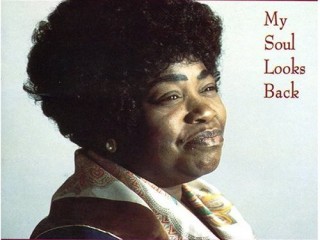
Marion Williams biography
Date of birth : 1927-08-29
Date of death : 1994-07-02
Birthplace : Miami, Florida, U.S.
Nationality : American
Category : Famous Figures
Last modified : 2012-03-15
Credited as : Singer, Gospel style, honored by the MacArthur Foundation in 1993
0 votes so far
Reflecting on Williams's legacy to rock and pop music, Vogue magazine contributor Margo Jefferson called the singer "the lady who gave [soul singer] Little Richard his whooo." Jefferson added that Williams's voice was "uncanny, encompassing a lusty preacher's shout and a plangent soprano." Throughout her life, Williams performed not for mere personal recognition but for a higher calling--the glorification of God through song.
Marion Williams was born in 1927 in Miami, Florida. Her father was an immigrant from the West Indies who worked as a barber; her mother was employed in a laundry. Williams's father died when she was nine, and her formal schooling was cut short so she could help to support the family. She followed her mother into the laundry, where she labored from sunup until sundown through her teen years. She had no formal voice training but was inspired by such gospel greats as Sister Rosetta Tharpe and Mary Johnson Davis. A more worldly older brother who owned a jukebox introduced her to the blues and jazz music that was popular during World War II.
"For Williams ... gospel wasn't just great music--it was life and belief," wrote Susan Richardson in Rolling Stone. The singer began her own performing career as a child in Sanctified churches in the Miami area. As her reputation grew she began traveling throughout the South as a soloist. Her break came in 1947, when she auditioned for a position with the nationally known Ward Singers, a gospel group headed by Madame Ward and her daughters Clara and Willa. Hired as a backup vocalist for the Ward Singers, Williams soon became the lead. She worked with the group for 11 years and with them recorded some of her best-known songs, including "Surely God Is Able," "I'm Climbing Higher and Higher," and "Packin' Up."
The 1950s saw much experimentation in popular music and many unconventional blends of style and influence. Early rock and roll pioneers found much to admire in Williams's spirited gospel work, from her octave-skipping falsetto "whoops" to her sheer backwoods energy and emotional delivery. Little Richard has cited her as an influence, and the Isley Brothers' "Shout" was an intentional homage. Nor was Williams's considerable talent ignored by other gospel singers. Aretha Franklin--whose father was Williams's close friend--has recorded some of Williams's songs and considers her an important mentor. Richardson noted that Williams was "in a sense, the woman behind the men behind rock & roll."
Williams left the Ward Singers in 1958 and formed another ensemble, the Stars of Faith. In 1961 the group appeared on Broadway in a gospel musical by Langston Hughes called Black Nativity. Williams stayed with the Stars of Faith until 1965, then embarked on a solo career. She was one of the first gospel singers to perform in Africa on a major tour sponsored by the U.S. State Department. She also recorded a number of albums, both with groups and as a soloist, for labels as diverse as Savoy, Vee Jay, Columbia, Atlantic, and Spirit Feel.
Perhaps Williams's most memorable performances were her a cappella hymns, which recall the emotional song stylings of overworked field and factory hands. According to Anthony Heilbut in Black Women in America, her a cappella work recalls a previous era, "but her stylistic authority is such that one doubts whether these traditional hymns have ever been so compellingly sung." Two of Williams's a cappella performances were featured in the film Fried Green Tomatoes, which was also dedicated to her, and another solo was added to the soundtrack of the 1992 movie Mississippi Masala. Her rendition of "Amazing Grace" was chosen by the Public Broadcasting Service (PBS) to highlight a documentary about that hymn.
Remarkably, Williams performed for almost half a century without ever singing or recording a secular number. She was completely dedicated to gospel music, seeing it as her particular ministry for troubled souls. She also refused for many years to sing in venues that served alcohol, effectively curtailing any nightclub or supper club appearances. She eased that restriction in the 1980s with a long engagement at the Cookery in Greenwich Village, New York, and gradually took her act to other similar supper clubs.
Williams's most important national honors came late in her life. In 1993 she was chosen as a Kennedy Center Honors recipient. That same year she also received a grant from the MacArthur Foundation in recognition of her life's work. Williams continued to record albums and to tour until kidney disease forced her into semiretirement in 1992. Even then she continued to sing at her local church in Philadelphia and to do an occasional concert. She died of vascular disease on July 2, 1994, at the Albert Einstein Medical Institute in Philadelphia.
Vogue's Margo Jefferson called Williams one of "the finest singers America has produced," a virtuoso at home "where spiritual force meets technical artistry." Explaining her particular gifts in the New York Times, Williams said: "When I'm singing, I get inspired by God. I call it 'the anointing.' It's an extra-special thing." Laughing, she added: "When the inspiration of God is missing, I just rely on talent."
















